'I had to persuade him. I think he was a sceptic to begin with, but later on he was convinced that what we were doing was the right thing to do, that there was no other way out.'
A revealing conversation between Dr Manmohan Singh and his daughter Daman Singh from her riveting book, Strictly Personal: Manmohan and Gursharan.

Precisely twenty years after he left academics to become a civil servant, Manmohan entered politics. It was an arena that he had always observed with interest, from inside government and from outside. On the inside he had served with ministers of different persuasions with equal diligence, making no attempt to engage with any political party.
Publicly commenting on the political system for the very first time in February 1991, he said that politics had to become 'an instrument of purposeful social change', and not merely 'a ticket to personal power and wealth'. Even so, he would not have imagined being part of that change until invited to do so by Prime Minister Narasimha Rao.
At the time, his purpose was to change the way the economy was managed. But somewhere along the way, he also hoped that this would change the way the political system worked.
From his days in the Planning Commission, he knew Narasimha Rao -- who was then a Cabinet minister -- very slightly. I wonder whether the prime minister had his own perspective on economic policy.
'Well, I don't think he had thought it through. But he had faith in what I told him. He also jokingly told me that if things worked well we would all claim credit, and if things didn't work out well I would be sacked.'
'Do you remember having to persuade him, or --'
'I had to persuade him. I think he was a sceptic to begin with, but later on he was convinced that what we were doing was the right thing to do, that there was no other way out. But he wanted to sanctify the middle path -- that we should undertake liberalization but also take care of the marginalized sections, the poor.'
I ask whether it took him long to be convinced. 'No. Within one month I had to present the Union Budget -- he had to approve it. So it was a quick process of adjustment. There was inflation, there was the balance of payments crisis, there was stagflation in the country. Prices were rising at the rate of 17 or 18 per cent. We had to grapple with all this.'
'Did he put his foot down on anything?'
'Well, I had to get his consent. When we changed the rupee's exchange rate, I had to get his consent. I didn't get the consent of the Cabinet because this was too sensitive a matter to be discussed in the Cabinet. But Narasimha Raoji was taken into confidence at every stage. We also put the industrial policy to the Congress Working Committee. Once it had approved of what we were doing, I was able to put our whole plan of liberalization in my Budget speech.'
'Did you speak before the Congress Working Committee?'
'Yes, I had to speak. And I said that what we were doing was nothing new. It was essentially Rajiv Gandhi's vision, and had been spelt out in the Congress party's manifesto for the 1991 elections. And therefore we were not going off the path charted by Rajivji -- rather we were fulfilling his vision. That, I think, carried the day. I don't think that sceptics like Arjun Singhji were convinced, but they didn't oppose it.'
On that occasion, Arjun Singh apparently remarked that the finance minister had read the manifesto a lot more carefully than everyone else.
'Did Narasimha Rao leave it to you to speak to the --'
'He didn't speak very often. He left it to me. The Congress Parliamentary Party discussed the Budget, why we had cut subsidies for fertilizer, and such things. At that time there was a lot of opposition. I had to defend these measures myself. And I knew there were a lot of non-believers in the Congress Parliamentary Party.
'When the Tirupati session of the All India Congress Committee took place in 1992, I had to explain and defend what we were doing. Liberalization was a new thing. There is always fear of the unknown. There was a feeling that we were departing from the Congress party's philosophy. Some people believed in the old system. And there were others who doubted that the new system would work. But so long as things worked, I think most people did not oppose it.'
'What do you think was his (Rao's) most important role?'
'That he allowed the process of liberalization and opening up to go ahead, and gave it his full support. Without his support I could do nothing. And as prime minister, it was essentially he who got the Cabinet on board.'
'Were Cabinet meetings different from those you had attended in the past?
'There were greater degrees of freedom. I think people spoke their mind more freely. When the Congress party was led by Indira Gandhi or Rajiv Gandhi, I think there was unquestioning acceptance of their view. People assumed that the leadership had thought things through. But in Narasimha Rao's case there was greater questioning of policies. So to that extent it was more open.'
'Did he sort of clamp down on questions?'
'No, he didn't clamp down on anything. His style was one of building a consensus through discussion. He was essentially a man of consensus. When the time came for difficult things to be done, he stood by me. I found him a very warm person. I could converse with him freely, frankly. He was a father figure.'

In all sincerity, Manmohan would give Narasimha Rao the credit for the success of the reforms. He believed that it was his determination and courage that enabled the nation to come out stronger. And that history would remember his unique leadership of a minority government that would change the way all mainstream parties thought about the Indian economy.
Within a month of the new government taking office, its finance minister presented a Budget that would signal the change in course. There was little time to educate the ruling party, let alone the public. As the debate unfolded in Parliament, politicians spoke with both power and passion. Sophisticated argument and skilful oratory took their places alongside populist rhetoric and acrimonious exchanges.
'In 1991 the Congress did not have a majority in Parliament--'
'We were a minority government right from the beginning. The Left and the Janata Dal were not in favour of our economic policies. But we had the tacit support of the BJP on economic matters, and the rest did not want a general election so soon. There were elections in 1989, and again in 1991. People didn't want frequent elections. Therefore, they didn't want to destabilise the government.'
'What was it like to speak in Parliament?'
'Well, it was a new experience for me. And the Budget speech -- I put my heart and soul into giving it personal touches. I had help from officials. But I added a substantial amount of my own thinking. I needed a lot of preparation because I was new to parliamentary life. So I had to work hard -- seeing what arguments would be deployed by the Opposition, how we could counter them and assert that what we were doing was in the best interests of the country. It was an overwhelming experience, because I now had the responsibility to lead the country.'
'Were you rattled by the noisy interruptions?'
'No,' he protests, 'I was not rattled.'
Watching the Budget session on television in the safety of their home, his family certainly was.

The strongest ideological opposition to the new economic policies came from the Left although the Communist government in West Bengal under Jyoti Basu had taken the kind of decisions that his party was opposing in Delhi.
'I notice that very often you brought up the subject of West Bengal--'
'I had to use that argument to soften the Opposition.'
'But didn't that enrage them?'
'Well, of course, but it also flattered them. It flattered them that I was praising them.'
It may have flattered the Communists in West Bengal. But judging from the number of remarks expunged from parliamentary records, I think it greatly enraged the Communists in Delhi.
'What about socialists in the Janata Dal -- what was their stand?'
'Janata Dal was vaguely left-wing. It was led by V P Singh. He was largely in favour of liberalization but he had to oppose what we were doing.'
'Wasn't the thinking of the Congress party on economic issues really very similar to that of the Janata Dal?'
'Well, it started like that, but it changed over a period of time. Now most political parties are in support of liberalization. Even though doubts arise from time to time, nobody has had the courage to change the policies since then. The direction of the policies that we set in 1991-1995 has remained unchanged.'
Excerpted from Strictly Personal: Manmohan and Gursharan by Daman Singh, with the kind permission of the publishers, HarperCollins India.
Feature Presentation: Aslam Hunani/Rediff.com

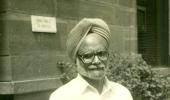

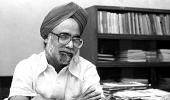
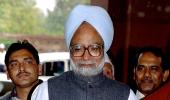



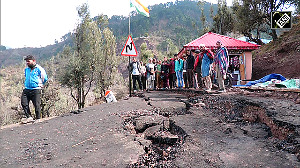
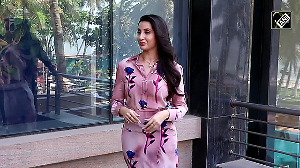

 © 2025
© 2025